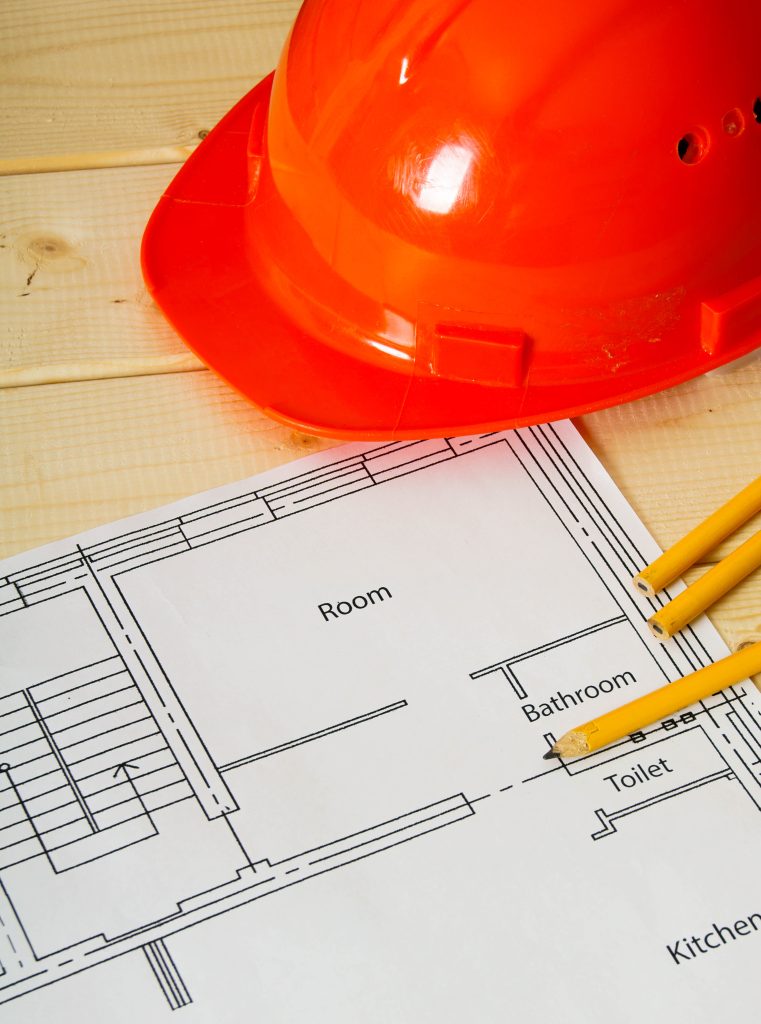Choosing the right commercial general contractor is a key decision when you’re planning a construction project. This choice can affect both the smooth running of the project and its overall success. Performing due diligence is crucial—this means carefully checking and considering all aspects of a contractor’s bid before deciding.
When selecting a contractor, one common pitfall is the temptation to accept a very low bid. While it might seem like a good deal initially, this can lead to bigger problems down the line. In this article, we’ll explore why looking deeper than just the price is important. We’ll discuss what happens when a contractor underbids and the risks of accepting such bids.
At Santiny Contractors, we focus on being clear and detailed in our bidding process. We make sure everything is upfront so there are no surprises later. This approach helps you understand what you’re paying for and ensures the project goes as planned.
The True Cost of Low Bids
Underbidding is when a contractor offers to do a job for a price much lower than what other contractors quoted. Why would a contractor do this? Often, it’s a strategy to win the contract over competitors. By appearing to be the cheapest option, they attract clients who are focused on minimizing costs. However, this can be misleading because the initial low price needs to tell the full story.
Accepting a bid that’s unrealistically low can lead to several major issues:
- Hidden Costs: Often, an underbid only includes some of the necessary expenses for the project. The contractor might start the work and then claim that additional funds are needed to cover things they “missed” in their initial estimate. This can cause the budget to balloon beyond what was originally planned.
- Compromised Quality: To keep costs down and still make a profit, contractors who underbid might cut corners. They could use cheaper materials or rush the work. This can affect the quality and longevity of the construction, leading to more maintenance or repairs later on, which adds to the total cost.
- Project Delays: Underbidding can lead to delays. If the contractor didn’t plan for enough budget, they might slow down work as they try to manage costs. Delays can also occur if they need to renegotiate for more money. This can extend the timeline significantly, affecting other schedules and increasing costs like interest payments if you’re financing the project.
- Stress and Relationship Strain: Working with a contractor who underbids for the project can lead to stress and frustration. As costs rise and delays become common, the relationship can strain and lead to disputes. This can make the construction process unpleasant and stressful for everyone involved.
These problems show why it’s crucial to look beyond just the initial price and consider the total cost of completing your project as planned. Choosing a contractor like Santiny, who values transparency and thoroughness, can help avoid these pitfalls and ensure a smoother and more predictable project outcome.
Immediate Complications of Underbidding
When a contractor offers a bid that is much lower than what other contractors are quoting, it might seem like a great way to save money. However, as soon as the project starts, several immediate complications can arise from such an underbid. These issues often wipe out any initial savings and lead to increased overall costs.
Unexpected Costs:
One of the most common problems with low bids is that they often don’t cover all the necessary expenses. As the project progresses, unexpected costs start to surface. These could be due to unforeseen problems with the site, such as poor soil conditions or hidden issues like old plumbing that needs more extensive work than anticipated.
Initially, you may look to save money, but these unforeseen expenses can quickly cause the total cost to exceed what you would have paid with a more realistic bid.
Project Delays:
Underbidding can also lead to significant delays in the project timeline. These delays often occur because the contractor may need to renegotiate for additional funds or take on other jobs to cover losses, which diverts their attention and resources from your project.
Delays are costly because they can extend the time you need to pay for temporary facilities, additional project management, and extended loan interests if the project is being financed. The longer the project takes, the more you end up paying in indirect costs like these.
Subcontractor Challenges:
Reliable subcontractors who offer competitive bids might only be available for a limited time. If the project is delayed due to issues stemming from the initial underbid, you might lose these subcontractors.
When the project finally proceeds, you may have to hire second-choice companies who may charge more. This not only increases the project cost but can also affect the quality of the work if these subcontractors are not as skilled or reliable.
Long-Term Implications of Underbidding
Choosing a contractor based on a significantly low bid can have long-term repercussions as well that extend well beyond the initial phases of construction. These effects can dramatically increase the project’s total cost and lead to ongoing issues after completion.
Change Orders:
One of the most frequent long-term issues is the need for change orders. These are adjustments to the contract terms that occur when the scope of the project changes. Underbidding often leads to frequent change orders because many requirements and challenges are not accounted for in the original bid.
Each change order can increase the project cost substantially, especially if it involves structural changes or expensive materials. The financial impact of these frequent changes can balloon the final cost well beyond the original estimate.
Estimating Errors:
Underbidding often stems from errors in estimating the project’s needs. Whether due to inexperience or intentional omission, these errors can be very costly. Inaccurate estimates can lead to shortages of materials, insufficient labor allocations, and unrealistic timelines.
When these estimates fall short, the project may require additional rounds of funding. Seeking more money midway can delay the project further and often at a higher interest rate, leading to an increase in the overall financial burden of the project.
Opting for an underbid might seem financially effective in the short term, but it can lead to numerous problems that extend the project duration, increase its cost, and cause undue stress. Therefore, it’s important to consider not just the cost but the reliability and track record of the contractor.
Making a Sound Decision
Choosing the right contractor for your project involves more than just picking the lowest bid. It’s crucial to compare bids thoroughly, ensuring you’re making an “apples to apples” comparison. This means looking at what each bid actually includes and ensuring no important details are overlooked.
Transparency:
When evaluating bids, transparency is key. Look for proposals that are clear and detailed. A good bid should break down the costs and explain each part of the project. This transparency helps prevent misunderstandings and unexpected costs later on. It’s important that the contractor is willing to discuss their bid in detail and answer any questions you might have.
Reputation and Reviews:
Before deciding, check the reputation of the contractor. Look at reviews from past clients and examine their completed projects. This can give you insights into the quality of their work and their reliability. A contractor with a good reputation is likely to deliver the quality you expect and adhere to the terms of the contract.
Full Disclosure:
Ensure the contractor provides a bid that includes all potential costs. Some contractors might omit certain expenses to lower their initial bid, only to add these costs later. Full disclosure upfront is essential to avoid surprises and additional fees during the project.
At Santiny Contractors, we pride ourselves on offering honest and informed bids. We believe that a well-informed client can make the best decisions for their project, which is why we ensure clarity and completeness in every proposal we submit.
Conclusion
The real cost of a project isn’t just in the initial bid—it’s in the overall expenses that accrue from choosing a bid that’s too low and not comprehensive. Underbidding can lead to increased costs, delays, and a lot of stress. This is why thorough vetting of each bid is so important.
Remember, “You get what you pay for.” Investing time in reviewing and comparing bids can save you money and headaches in the long run. Don’t just look at the price; consider the contractor’s transparency, reputation, and the thoroughness of their bid.
We encourage potential clients to consider all aspects of a contractor’s proposal. By choosing a contractor like Santiny Contractors, who values honesty and thoroughness in every bid, you ensure that your project starts on the right foot. Think carefully, choose wisely, and build successfully.

